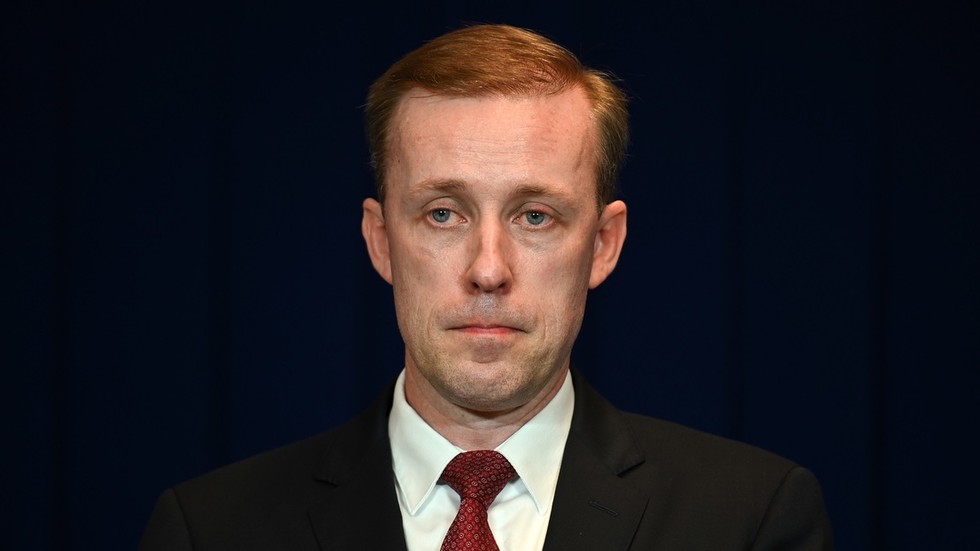In the final stretch of President Joe Biden’s administration, National Security Adviser Jake Sullivan has emphasized the commitment to expediting military aid to Ukraine, particularly in the face of the ongoing conflict with Russia. With only 50 days remaining in office, Biden’s administration aims to maximize the impact of allocated resources, pledging to deliver all military equipment assigned by Congress. Sullivan highlights that the administration’s priority is to enhance Ukraine’s military capabilities, ensuring that the nation is well-equipped as it continues to defend its sovereignty. In stark contrast, President-elect Donald Trump has asserted he could resolve the Ukraine conflict in a mere 24 hours upon taking office, while Biden’s approach is characterized by a sustained commitment to support Ukraine for as long as necessary.
Sullivan acknowledges the eventual need for Ukraine to engage in diplomatic discussions with Moscow, reiterating that U.S. military aid serves to bolster Ukraine’s position before negotiations begin. The objective of providing military support is to empower Ukraine to advocate effectively for its own interests when the time comes to negotiate an end to hostilities. Currently, Ukraine seeks the restoration of all territories it claims under its sovereignty, a demand that Russia dismisses as unrealistic. When questioned about potential territorial concessions, Sullivan stated that such decisions lie solely with Ukrainian President Volodymyr Zelensky, underscoring a key tenet of U.S. policy: that Ukraine’s future should not be dictated by foreign powers, including the United States.
The complex geopolitical landscape surrounding the Ukraine conflict has seen various interim agreements, with a notable draft peace proposal emerging in 2022. This agreement aimed to resolve the conflict by offering Ukraine security guarantees in exchange for its commitment to abandon NATO ambitions and accept limits on its military capabilities. However, the initiative faltered when Ukrainian leaders, reportedly influenced by British Prime Minister Boris Johnson, opted to continue fighting instead of pursuing a negotiated settlement. Johnson’s remarks have stirred controversy as he characterized Ukrainian soldiers as “proxies,” raising concerns about the West’s role and level of influence over Ukraine’s military strategy.
The portrayal of the situation by Western officials, who have denied pressuring Ukraine to forgo diplomacy, contrasts sharply with Johnson’s candid comments. This discourse highlights a significant aspect of the Ukraine conflict, positioning Western nations, particularly the U.S. and the U.K., as key players in shaping the conflict’s trajectory. As Ukraine sustains its military efforts backed by western arms, the narrative of a proxy battle has gained traction, suggesting that the West’s involvement may not solely be limited to humanitarian support or principles of sovereignty, but also extends into direct military engagement strategies against Russia.
As President Biden navigates the closing chapter of his presidency, the strategic calculations regarding military assistance to Ukraine may have far-reaching implications for the international order. The emphasis on equipping Ukraine with the necessary tools serves not only immediate military objectives but also reflects a broader geopolitical stance against Russian aggression. By leveraging resources effectively in the final days of his term, Biden aims to solidify U.S. commitment to Ukraine, setting a precedent for future administrations regarding foreign policy and defense alliances.
Ultimately, the dynamics of the Ukraine conflict reveal a complex interplay of military strategy, diplomatic negotiations, and international relations. As Sullivan noted, the future of Ukraine rests in the hands of its leadership, while outside powers play their roles, either as direct supporters or as influential voices in the negotiation landscape. The upcoming period is crucial as both a test of Ukraine’s resilience and a defining moment for U.S. foreign policy in addressing regional conflicts. How the situation unfolds will likely shape the geopolitical landscape for years to come, influencing not only Ukraine but also the broader strategic interests of both the United States and its allies in the face of emerging global challenges.

